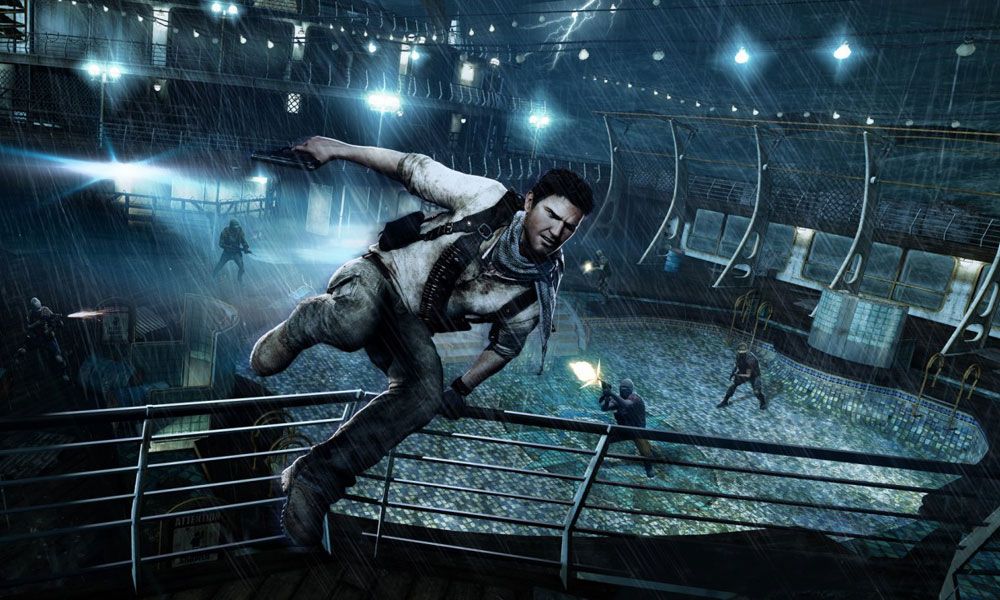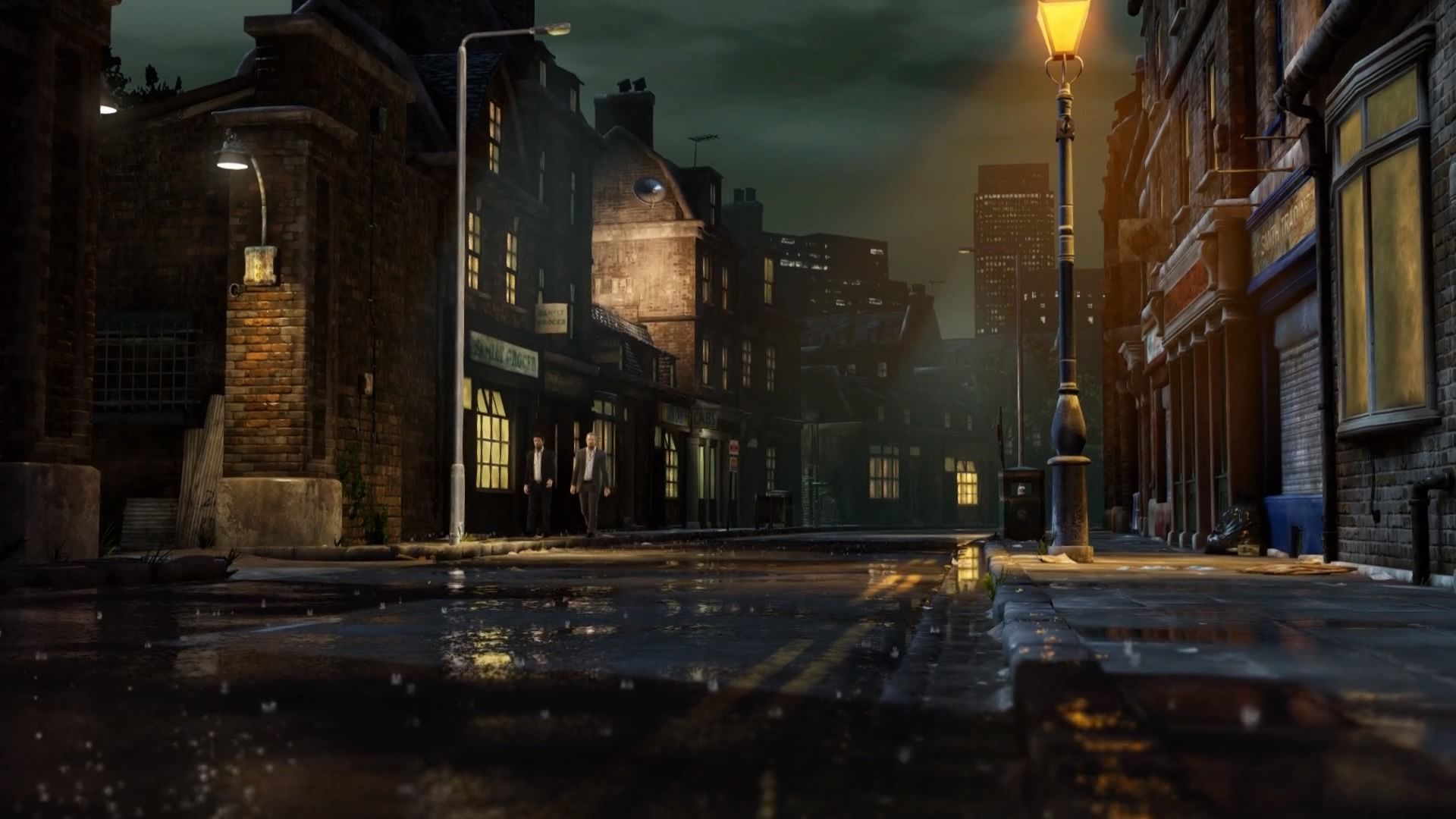Uncharted 3: Drake’s Deception celebrates its 10th anniversary this week, now if you’ll excuse me I’m going to turn into dust and become one with the Rub' al Khali desert. Video games please stop making me feel old. I'm just trying to exist and vibe in this hellscape.
Putting aside its age, Uncharted 3 remains a fantastic adventure and a fitting conclusion to Nathan Drake’s original trilogy. For a number of years it felt destined to be his last, with The Last of Us marking a more mature, introspective type of narrative rollercoaster that saw Naughty Dog change how it made games forever. But along came A Thief’s End, which channelled a similar level of melancholy thanks to the dual directing talents of Bruce Straley and Neil Druckmann. It kept all of the charm, action, and dialogue of its predecessors, but deep down it was a very different game. It was willing to dissect Nathan Drake as a character, analysing his flaws and problematic relationships in the wake of a life defined by failed treasures. You can only watch so many lost cities crumble until you need to take a look in the mirror.
To its credit, Drake’s Deception does try to tell a more nuanced tale, the clue being in the name. Drake is deceiving someone isn’t he? The cheeky bugger. Acting as the final entry in the series helmed by Amy Hennig, this sequel is a darker turn on Nolan North’s character. It dares to slowly but surely tear apart Drake’s legacy in a way the fourth game would build upon, drawing doubts amidst the relationships of key characters as we are forced to confront what’s real and what isn’t. Roaming the desert after the legendary cargo plane sequence is still burned into my memory. It felt like this hero’s final chapter, the sands threatening to swallow him whole as distant mirages seek to break down what few faculties he has left.
When he emerges into a sequence of firefights with little need to quench his thirst or regain his sense of place, the dissonance is palpable, but Uncharted 3 is so excellent because it manages to balance its swashbuckling antics with a narrative that is willing to delve a little deeper. There’s a reason that Tom Holland and Mark Walhberg’s upcoming adaptation draws from this game more than any other. It isn’t overly dour or contemplative like A Thief’s End, while Among Thieves isn’t quite dense enough to hang an entire film upon, not a half-decent one anyway.
The opening flashback sequence defines this game’s legacy. It was groundbreaking at the time, daring to recontextualise our relationship with a character who had already grown iconic in the eyes of many. In a series defined by explosive action and immersive puzzles, Drake’s Deception decides to slow things down and let us bask in the chemistry between Nate and Sully, unboxing how their first moments together would grow into a relationship that will be pushed to its limits later in the campaign.
Its thoughtful, considered in its approach to more substantial storytelling, but it never dominates the experience. Uncharted 3 is still a silly game, drenched in laughable cliches as we travel the world and bumble across stereotypes that speak to Naughty Dog’s knack for not taking itself too seriously. Well, it’s all about being sad and serious nowadays, so revisiting this misunderstood masterpiece is a breath of fresh air. When Nathan Drake and his mates descend upon London to marvel at the skyline and walk through rain-drenched streets filled with red phone boxes, its ignorance to realism becomes abundantly clear.
The pub sequence is so ridiculous. Not only does this establishment charge £3 for a meal (fish ‘n’ chips obviously) in London of all places, the entire building is populated by clones of Phil Mitchell happy to kick your teeth in at a moment’s notice. No research was done here, or if it was, Naughty Dog decided to fill in the gaps with playful whimsy that wasn’t afraid to poke fun at itself. It’s a globe-trotting adventure where you aren’t expected to think too deeply about anything, relishing in the fantastical nature of whatever treasure you happen to be after. I feel this approach can make some of its historical moments fall flat, especially when its central mystery is based on a handful of passages from the Quran. Yet the campaign plays out at such a frenetic pace that you’re seldom given a chance to piece all of these disparate references together.
Eventually Nathan Drake stumbles upon an ancient civilization, has a couple of scraps, and sprints away as it all falls apart beneath him. The villains perish and he walks off into the sunset with his girlfriend in tow. They live happily ever after, and the inner turmoil the game spends hours exploring is swiftly forgotten about. Drake’s Deception is filled with the dramatic highs and lows that Indiana Jones helped pioneer, modernising them for a new audience with everything we’d expect from a Naughty Dog blockbuster. Part of me misses the simplicity of it all, and how it wasn’t obsessed with imbuing the narrative with a message we as players are expected to ruminate upon long after the credits roll. It’s a bit of fun, and while it’s far from my favourite in the series, it stands up today as something well worth revisiting. Nothing beats the cargo plane sequence, laws of physics be damned.
Uncharted will never revisit the tone and execution of the original trilogy again, because it’s outgrown everything it set out to achieve. I respect Naughty Dog’s drive to move forward and create something more meaningful, but so much of my childhood was defined by Nate’s first few adventures that I can’t help but remember them fondly. 10 years later, Drake’s Deception remains an excellent swansong to an iteration of this character that will go down in history as one of gaming’s best. Let’s just try and forget he definitely murdered thousands of people.

.jpg)

